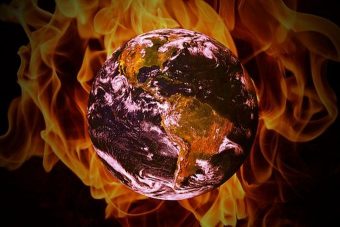
Every September, the Intergovernmental Panel On Climate Change releases a report on global warming, but that report doesn’t take shape overnight. It is the result of nearly a year’s worth of work compiling, editing, and digesting the latest research from around the world. A draft of the report was available on the Federal Register in the US until recently. Bear in mind this is a draft and may change in significant ways prior to final publication next September. New studies published after the draft report was prepared but before May 15 may be included. Nevertheless, the proposed report does not mince words.
“There is a very high risk that under current emissions trajectories and current national pledges global warming will exceed 1.5°C above preindustrial levels. Limiting global warming to 1.5°C would require a rapid phase out of net global carbon dioxide (CO2) emissions and deep reductions in non-CO2 drivers of climate change such as methane, with more pronounced and rapid reductions required than for limiting global warming to 2°C. With a 66 percent probability, [keeping the increase below 1.5 degrees Celsius] lies beyond our capabilities.”
Even if average global temperatures could be kept to 1.5 degrees C or below, “climate trends and changing extreme events in the oceans and over land imply risks for ecosystems and human societies even larger than today.” According to Think Progress, the draft report claims only “rapid and deep” reductions in emissions together with aggressive carbon sequestration measures will forestall a more serious climate scenario. “Delaying actions to reduce greenhouse gas emissions increases the risk of cost escalation…and reduced flexibility in future response options in the medium to long-term,” the draft reads.
“These may increase uneven distributional impacts between countries at different stages of development.” To offset the effects of climate change on poorer nations and coastal areas, “all countries would need to significantly raise their level of ambition, shift financial flows and investment patterns, [and] improve coherence in governance,” according to the draft. With a certified narcissist and sociopath in the White House, the odds of the US lifting a finger to help are virtually nonexistent.
There is some hope for America in the next national elections, in which progressives are showing strong early leads in many races, but those results could well be too little and too late to help the world avert an existential crisis. Some experts suggest it will take $100 trillion dollars to solve the climate emergency. Is that too high a price to pay to avoid extinction?
Source: cleantechnica.com

